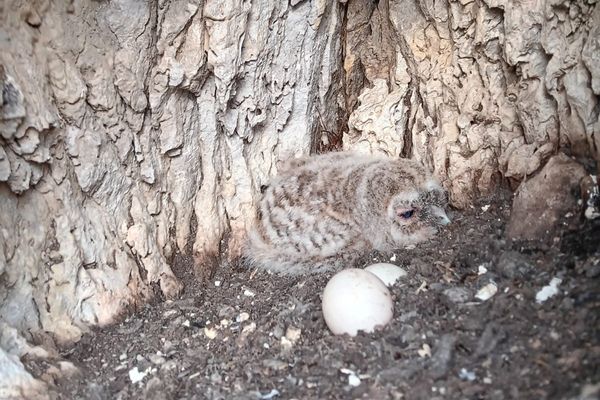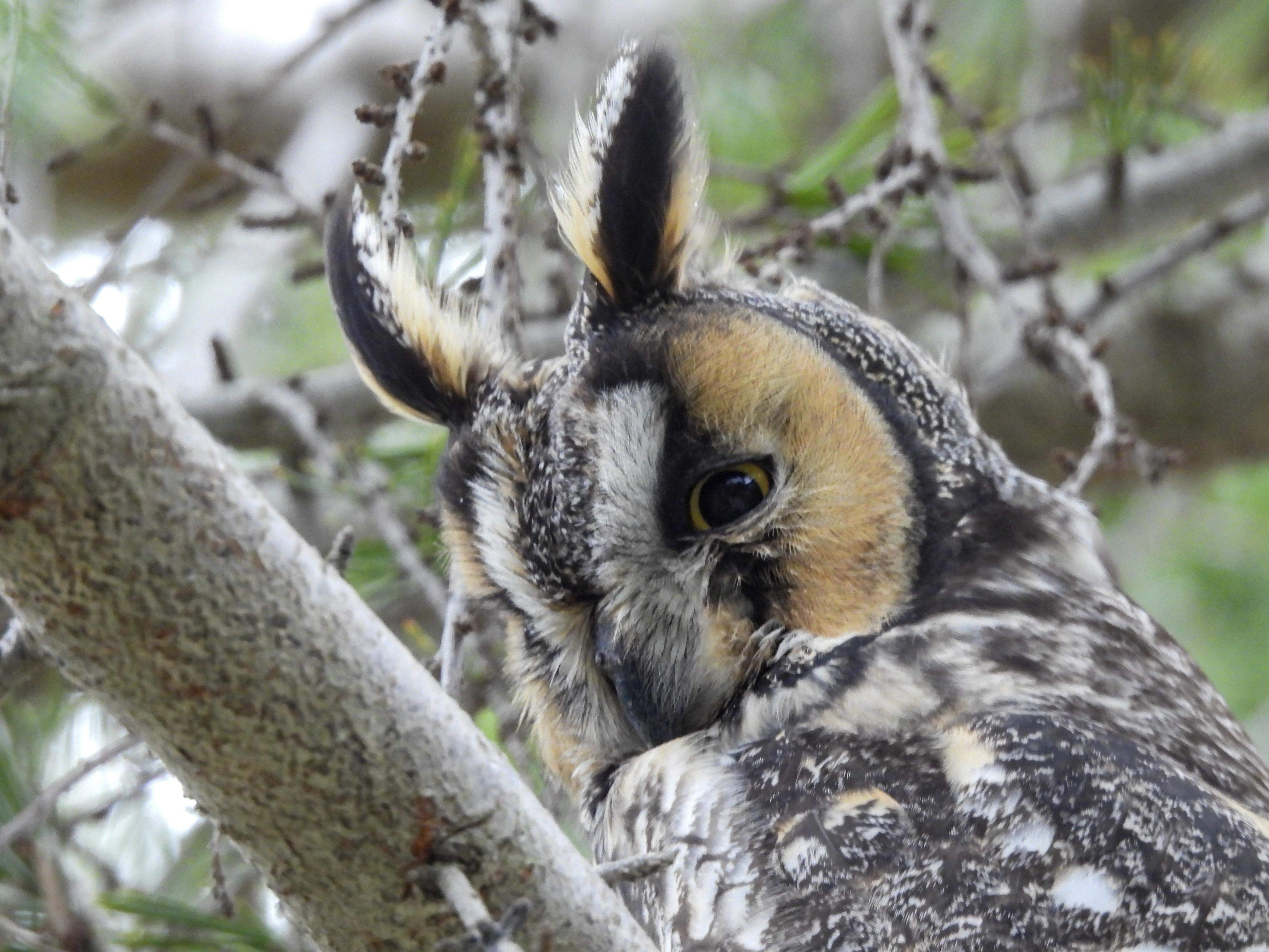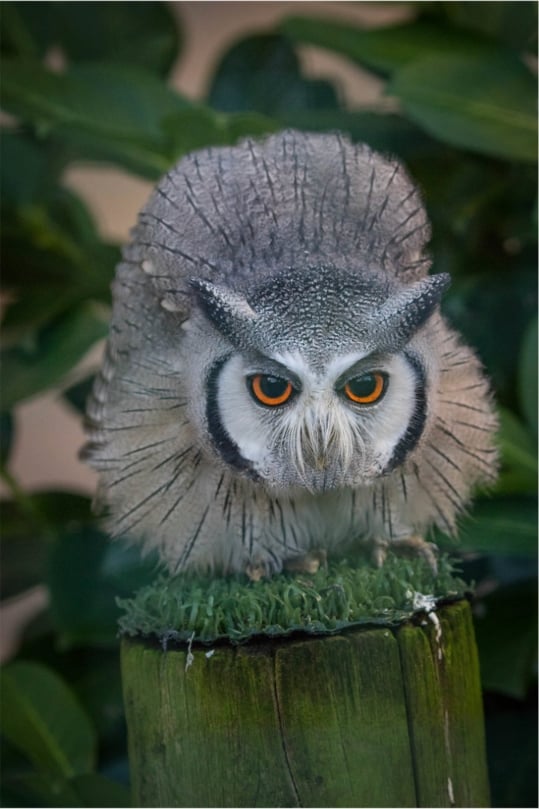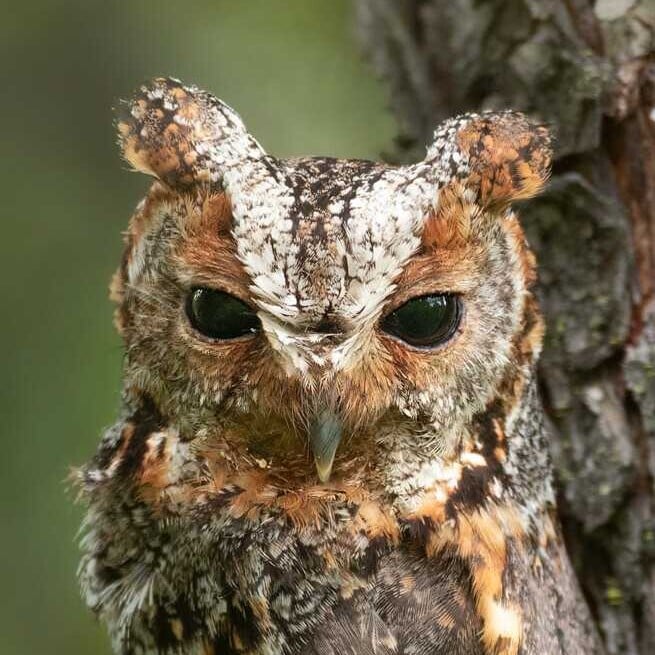The article is in french. Feel free to use a translator.
TF;DR Translation:
The Troublemaking Tawny

Bauges Massif (the general area of the nest)

A climbing club president found an owl nest when he stuck his hand inside a hand hold. It sounds like the hole is near the base of the mountain and is one that would see a lot of use by climbers in that area. The 2 other eggs are not expected to hatch. Warning signs were put up after officials closed the climbing area, and a camera was installed to monitor the owl, as it is a protected species.
Bonus Content: France has 9 types of owl, and it is a very nice variety!
Chouette = Owls with no visible ear tufts.
- Chouette effraie, Effraie des clochers - Barn Owl
- Chouette chevêche, Chevêche d’Athéna - Little Owl
- Chouette chevêchette, Chevêchette d’Europe - Pygmy Owl
- Chouette hulotte – Tawny Owl
- Chouette de Tengmalm - Tengmalm’s owl, Boreal Owl
Hibou = Owls with visible ear tufts.
- Hibou des marais - Short Eared Owl
- Hibou petit-duc - Scops Owl
- Hibou moyen-duc - Long Eared Owl
- Hibou Grand-duc d’Europe - Eagle Owl
Thanks for translating all the owl names. I’m bookmarking that comment!
I mostly stole it from another list I found, but I cleaned it up a bit and removed the scientific names so it was just the French and English. It’s fun to look at the names, like:
Chouette chevêche - Little Owl Chouette chevêchette - Pygmy Owl
So is a Pygmy Owl just a Little Little Owl? 🤔
I do like how French and Spanish (maybe others?) differentiate between horned and non-horned owls.
Climbing a cliff, he discovers a baby owl in a cave: several climbing routes closed in Savoie
While climbing a cliff in Savoie, a climber had an unexpected encounter. He was leaning against a hold containing a nest occupied by a tawny owl chick, a protected species. The climber immediately alerted the Bauges Nature Park and climbing routes were closed to protect the nestling.
A climber out on a crag in the Bauges massif had an unexpected encounter on the side of a cliff. While climbing a route at the Garins site in the Bauges massif, Alexandre Renoir accidentally put his hand in a hold containing a tawny owl nest on 19 June.
Inside the cavity was a chick of this protected species: “The cliff in question is split into two parts. I discovered the nestling while climbing a route that had just been re-equipped but hadn’t been climbed for years. I had already climbed this route last winter but there was no owl. Here, a nestling occupied a hole 40 centimetres in diameter and 60 centimetres deep”, explains Alexandre Renoir.
“The hole is clearly visible from the bottom of the wall. It’s a hold that you have to use to get through a passage. I put my hand in the hole and it was a real surprise. The chick was at the bottom of the hole,” he continues. I immediately climbed back down and left the route.
Once on the ground, the climber, who is also president of the Bauju climbing club, contacted the Savoie Territorial Committee and the Bauges Regional Nature Park. Four routes were then closed on the Garins site, considered to be the most important climbing site in the massif, with some 110 routes.
A protective device
The aim of the measure is to allow the young owls to develop properly before they fly away. “It happens occasionally that owls nest on cliffs, but it’s still quite rare”, explains Adrien Lambert, coordinator for the Ligue de protection des oiseaux (LPO) in Savoie.
“It’s a protected species that’s quite shy by nature. What’s more, the parents go back and forth every day, not only to defend the nest, but also to feed the chick with micro-mammals, such as mice or field mice. They can be quite aggressive when approaching their nest”, he points out.
Two other eggs were found in the cavity. But these are not expected to hatch. As a result, only the nestling is being closely monitored. In addition to closing the lanes, a photo trap has been installed to monitor the progress of the brood, and awareness-raising signs have been put up nearby.
“The climber’s behaviour is to be commended. It illustrates the good cohesion between an outdoor sport and the proper development of biodiversity. It shows that it is possible to reconcile sporting activities with the preservation of wildlife,” says Adrien Lambert.
*Translated with DeepL (free version)





